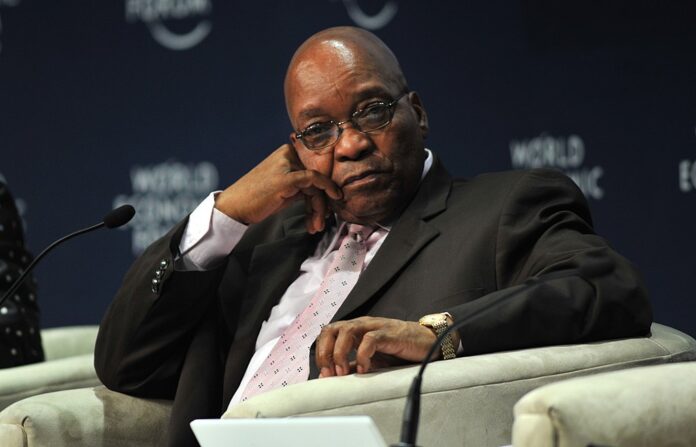Jacob Zuma’s uMkhonto weSizwe seeks court intervention to halt parliamentary session amid allegations of election irregularities
Jacob Zuma’s political party, uMkhonto weSizwe (MK), led by the former President of South Africa, has taken legal action to prevent the convening of the newly elected national assembly scheduled for Friday. This session holds significance as it marks the voting process for the country’s presidency.
Despite the impending parliamentary gathering, Mr. Zuma’s MK party has announced its boycott, citing irregularities in the recent general election. However, no evidence has been presented to substantiate these claims.
Embed from Getty ImagesMr. Zuma, once an ally of current President Cyril Ramaphosa, has turned into his adversary. Ramaphosa, leading the African National Congress (ANC), faces the challenge of securing a second term amidst a diminishing parliamentary majority for the ANC, a first since the end of apartheid in 1994.
With the ANC winning only 40% of the vote, discussions are underway with other parties to form a coalition government. Mr. Zuma, who attributes his removal from the presidency in 2018 to President Ramaphosa, has thrown his weight behind the MK party, which surprisingly secured the third position in the recent election, particularly impacting the ANC’s vote share.
Despite emerging as a significant player, MK failed to secure a majority in Zuma’s home province of KwaZulu-Natal, where it demanded Ramaphosa’s resignation.
In a legal manoeuvre, MK has challenged the legitimacy of the election results and the constitutionality of the upcoming parliamentary session. They assert that insufficient parliamentary attendance renders the session unconstitutional and demand a new election within 90 days.
While the legal ramifications of this move remain uncertain, parliamentary officials have dismissed MK’s objections, maintaining that the election commission’s declaration of free and fair elections was valid.
Analysis:
Political Perspective: Zuma’s party’s legal challenge reflects the ongoing power struggle within South Africa’s political landscape, with implications for the stability and legitimacy of the government. The dispute underscores deep-seated divisions within the ruling ANC and raises questions about the future trajectory of South African politics.
Social Impact: The political standoff may exacerbate existing social tensions and undermine public confidence in the electoral process. Uncertainty surrounding the formation of the government could prolong political instability and hinder progress on key socio-economic issues facing the country.
Economic Outlook: The political uncertainty surrounding the parliamentary session could unsettle investors and impact economic confidence. A protracted dispute may delay crucial policy decisions and impede efforts to address pressing economic challenges, potentially affecting South Africa’s growth prospects in the near term
